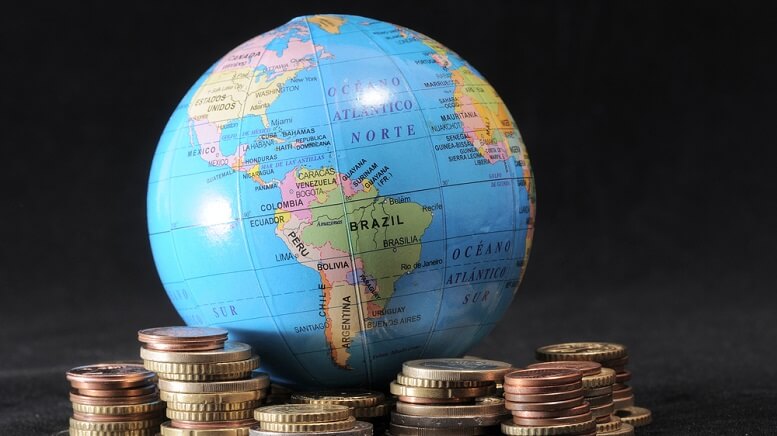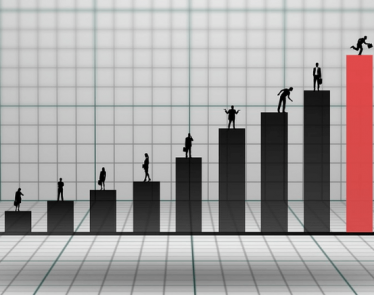
It’s been a bumpy week for stock markets around the world. The Dow Jones posted two of its best days in history in terms of points gained on Monday and Wednesday, and one of its worst point losses Tuesday. The US Federal Reserve shocked investors on Tuesday with an emergency rate cut to give businesses and households a boost to combat the disruption inflicted by the viral outbreak of the coronavirus, but that cut failed to stimulate any confidence in the market and actually raised more questions about America’s economic resilience.
Election Season Takes Back Seat
In fact, Tuesday’s gains had little to do with the coronavirus or the Fed’s rate cut. It was actually a reaction to Joe Biden’s Super Tuesday surge, which saw him claim victory in 10 of the 14 states voting and push him right back into the frontrunner position, just a week after his campaign seemed dead and buried after several poor showings in earlier votes. Vermont Senator Bernie Sanders was relegated to second place in the Dem race, which was welcomed by Wall Street, often seen as the democratic socialist’s biggest enemy.
It’s unusual that the US presidential race may have to play second fiddle in terms of headlines and impact on the markets, particularly one as divisive as the 2020 contest, but such is the scale of the COVID-19 outbreak. Questions are now being raised as to how the US, and governments around the world, will react to the virus after criticisms were leveled at China’s stuttering response, which arguably exacerbated the entire outbreak. But just how serious an impact will the coronavirus have on an already faltering global economy? Let’s take a deeper look:
Headed to Recession?
The word recession has been whispered around government halls, trading floors, and board rooms for a couple of months now as geopolitical tensions linked to Trump, Brexit, and China led to faltering growth in some of the world’s biggest economies, and that was even before the coronavirus broke out at the beginning of the year.
Valuations of safe-haven assets like gold and treasury bonds have spiked sharply in recent weeks as a result. For example, the term premium on long-dated US government bonds fell toward record lows at negative 116 basis points, which shows how much investors are willing to pay for the safe harbor of US government debt. As a result, mechanical models of recession risk have ticked higher—although those tools may not paint an entirely accurate picture.
While equity markets are generally a decent indication of the health of the economy and the likelihood of a recession (even causing one in 2008), history shows that bear markets and recessions should not be automatically conflated. A look at bear markets over the last one hundred years suggests that only about two out of every three have led to a recession. Since the Great Depression, there have been seven cases where a bear market did not coincide with a recession.
>> AMD Stock Jumps After Affirming Revenue Guidance for Current Quarter
Even Without a Recession, Coronavirus Could End China Dependency
Of course, none of those seven examples were caused by a force as disruptive as the coronavirus. A halt to the manufacturing industry in China is already having a disastrous impact on the global supply chain, and the vast reduction in air travel has seen Flybe, Europe’s largest regional airline, go under after just a few weeks.
Many US firms, including some of the biggest companies in the world, have a manufacturing base in China, which has established itself as the second-largest economy in recent years. For many of these companies, the coronavirus has highlighted the downside of their dependency on the Asian state. Supply lines have been crippled by quarantines, factory closings, travel restrictions, and other stringent measures taken by China and other countries to contain the outbreak, and the sharp decline in China’s economy has had a widespread domino effect.
Apple (NASDAQ:AAPL), Microsoft (NASDAQ:MSFT), and Procter & Gamble (NYSE:PG) are among many corporations that have warned of weaker-than-expected profits because of their exposure to China. P&G, for example, said it has 387 suppliers in China that ship 9,000 materials globally, affecting about 17,600 finished products. Analysts who cover 3,000 firms reported that companies in 10 out of 12 global industries, including semiconductors, autos, and medical equipment, have shifted, or plan to shift, at least part of their supply chains from current locations in China.
“A lot of the coronavirus shows the importance of bringing manufacturing back to America so that we are producing at home, the medicines and equipment and everything else that we need to protect the public’s health,” said Donald Trump, in what he will surely view as nothing but a victory in his protracted trade war with China.
The Takeaway
Epidemics like this don’t come along too often. The last one close to this scale was the SARS outbreak of 2002, and back then, China was not the manufacturing force it is now. Economists simply don’t have any good models for a crisis of this nature, and all governments are responding in different ways. For example, the UK has attempted to offset the economic impact by pledging to pay employees for any time they miss from work.
For now, there simply is no answer for the impact the outbreak will have on the economy other than that it will have one. “No one can say with much confidence how much harm the virus will ultimately do to people or damage to the global economy,” said Bernard Baumohl, Chief Global Economist at the Economic Outlook Group.
Featured Image: DepositPhotos © underworld1







